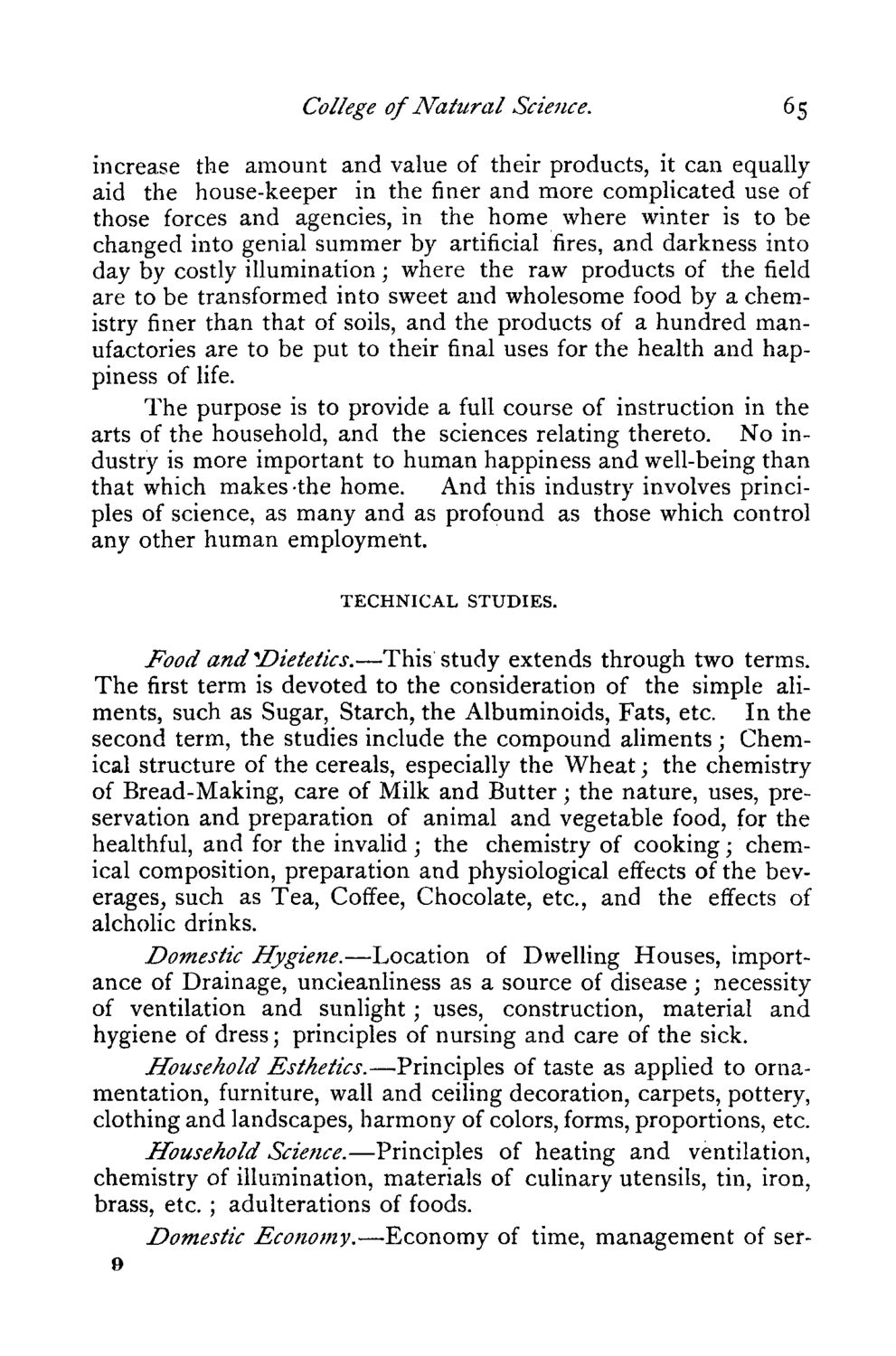| |
| |
Caption: Course Catalog - 1879-1880
This is a reduced-resolution page image for fast online browsing.

EXTRACTED TEXT FROM PAGE:
College of Natural Science. 65 increase the amount and value of their products, it can equally aid the house-keeper in the finer and more complicated use of those forces and agencies, in the home where winter is to be changed into genial summer by artificial fires, and darkness into day by costly illumination; where the raw products of the field are to be transformed into sweet and wholesome food by a chemistry finer than that of soils, and the products of a hundred manufactories are to be put to their final uses for the health and happiness of life. The purpose is to provide a full course of instruction in the arts of the household, and the sciences relating thereto. No industry is more important to human happiness and well-being than that which makes -the home. And this industry involves principles of science, as many and as profound as those which control any other human employment. TECHNICAL STUDIES. Food and "Dietetics.—This study extends through two terms. The first term is devoted to the consideration of the simple aliments, such as Sugar, Starch, the Albuminoids, Fats, etc. In the second term, the studies include the compound aliments; Chemical structure of the cereals, especially the Wheat; the chemistry of Bread-Making, care of Milk and Butter; the nature, uses, preservation and preparation of animal and vegetable food, for the healthful, and for the invalid; the chemistry of cooking; chemical composition, preparation and physiological effects of the beverages, such as Tea, Coffee, Chocolate, etc., and the effects of alcholic drinks. Domestic Hygiene.—Location of Dwelling Houses, importance of Drainage, uncleanliness as a source of disease; necessity of ventilation and sunlight; uses, construction, material and hygiene of dress; principles of nursing and care of the sick. Household Esthetics.—Principles of taste as applied to ornamentation, furniture, wall and ceiling decoration, carpets, pottery, clothing and landscapes, harmony of colors, forms, proportions, etc. Household Science.—Principles of heating and ventilation, chemistry of illumination, materials of culinary utensils, tin, iron, brass, etc. ; adulterations of foods. Domestic Economy.—-Economy of time, management of ser9
| |